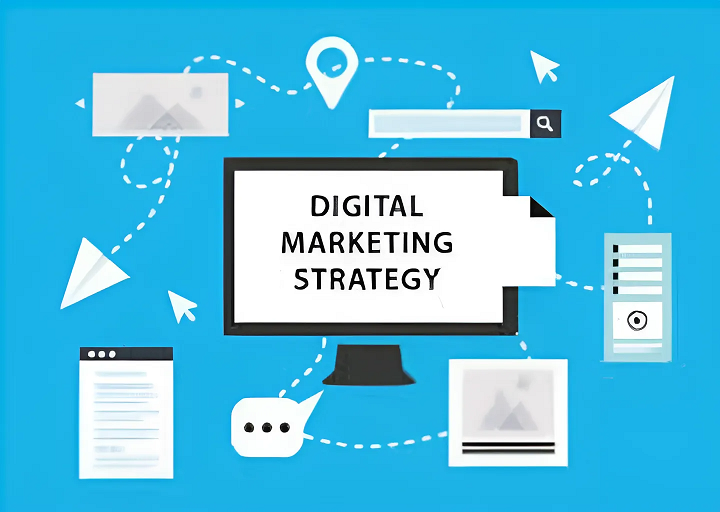In today’s digital age, having a robust digital marketing strategy is essential for businesses of all sizes. Whether you’re a startup or a seasoned corporation, an effective online presence can significantly impact your brand’s visibility, reach, and ultimately, your bottom line. However, with the ever-evolving landscape of digital platforms and technologies, it’s crucial to approach digital marketing strategically. In this actionable guide, we’ll walk you through the process of building a comprehensive digital marketing strategy to help you achieve your business goals.
- Define Your Objectives: The first step in crafting a digital marketing strategy is to clearly define your objectives. What do you aim to achieve through your digital efforts? Whether it’s increasing brand awareness, driving website traffic, generating leads, or boosting sales, your objectives will guide the rest of your strategy.
- Know Your Audience: Understanding your target audience is critical for tailoring your marketing efforts effectively. Conduct thorough market research to identify your audience’s demographics, interests, pain points, and online behaviors. This information will inform your content creation, messaging, and channel selection.
- Choose the Right Channels: With countless digital channels available, it’s essential to select the ones that align with your objectives and resonate with your target audience. Consider platforms such as social media (e.g., Facebook, Instagram, LinkedIn), search engines (e.g., Google, Bing), email marketing, content marketing, and paid advertising. Each channel offers unique opportunities to connect with your audience, so choose wisely.
- Develop Compelling Content: Content lies at the heart of any successful digital marketing strategy. Create high-quality, relevant content that addresses your audience’s needs and interests. If it’s blog posts, videos, infographics, podcasts, or social media posts, ensure that your content provides value and encourages engagement.
- Optimize for Search Engines (SEO): Improve your website’s visibility in search engine results by implementing SEO best practices. Conduct keyword research to identify relevant terms and phrases related to your business, and optimize your website’s content, meta tags, and structure accordingly. Regularly update your content and leverage backlinks to enhance your site’s authority.
- Leverage Social Media: Social media platforms offer powerful tools for building brand awareness, engaging with your audience, and driving traffic to your website. Develop a social media strategy that includes creating a content calendar, engaging with followers, running targeted ad campaigns, and analyzing performance metrics to refine your approach.
- Invest in Paid Advertising: Supplement your organic efforts with paid advertising to amplify your reach and drive immediate results. Platforms like Google Ads, Facebook Ads, and LinkedIn Ads allow you to target specific demographics, interests, and behaviors, ensuring that your ads reach the right audience at the right time. Monitor your ad performance closely and adjust your campaigns based on insights and analytics.
- Implement Email Marketing: Email marketing remains one of the most effective channels for nurturing leads and retaining customers. Build an email list of subscribers who have opted in to receive communications from your brand, and send personalized, relevant content that adds value to their inbox. Segment your email list based on demographics, behaviors, and preferences to deliver targeted messages that resonate with each segment.
- Measure and Analyze Performance: Regularly monitor the performance of your digital marketing efforts to gauge their effectiveness and identify areas for improvement. Utilize analytics tools such as Google Analytics, social media insights, and email marketing platforms to track key metrics such as website traffic, engagement, conversion rates, and ROI. Use these insights to refine your strategy and optimize your tactics for better results.
- Iterate and Adapt: The digital landscape is constantly evolving, so it’s essential to remain agile and adaptable in your approach. Continuously evaluate market trends, consumer behaviors, and emerging technologies to stay ahead of the curve. Be willing to iterate on your digital marketing strategy, experiment with new tactics, and pivot when necessary to keep your brand competitive and relevant.
By following these actionable steps, you can build a comprehensive digital marketing strategy that drives results for your business. Remember to stay focused on your objectives, understand your audience, leverage the right channels, create compelling content, and continuously measure and optimize your efforts for success in the dynamic world of digital marketing.

